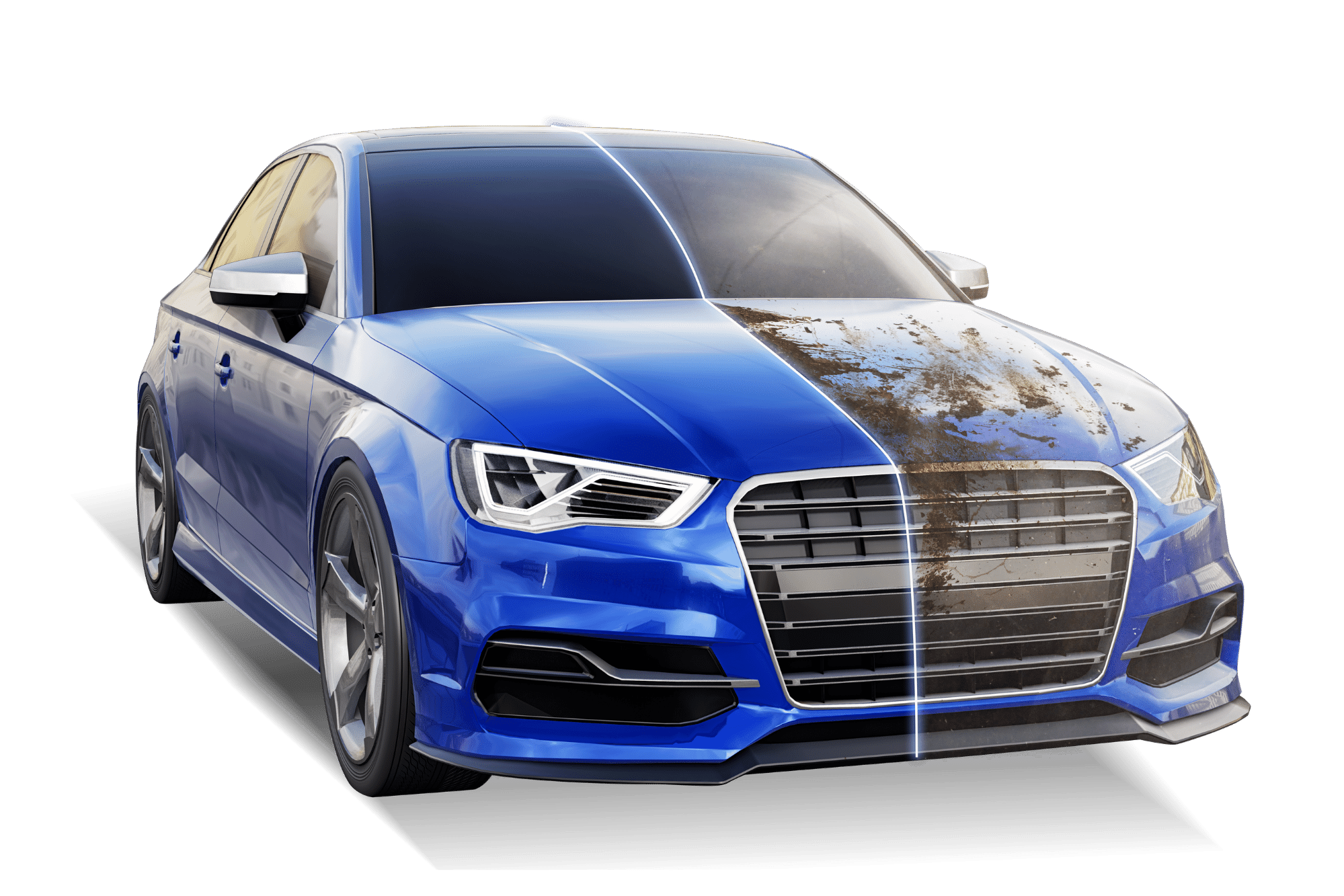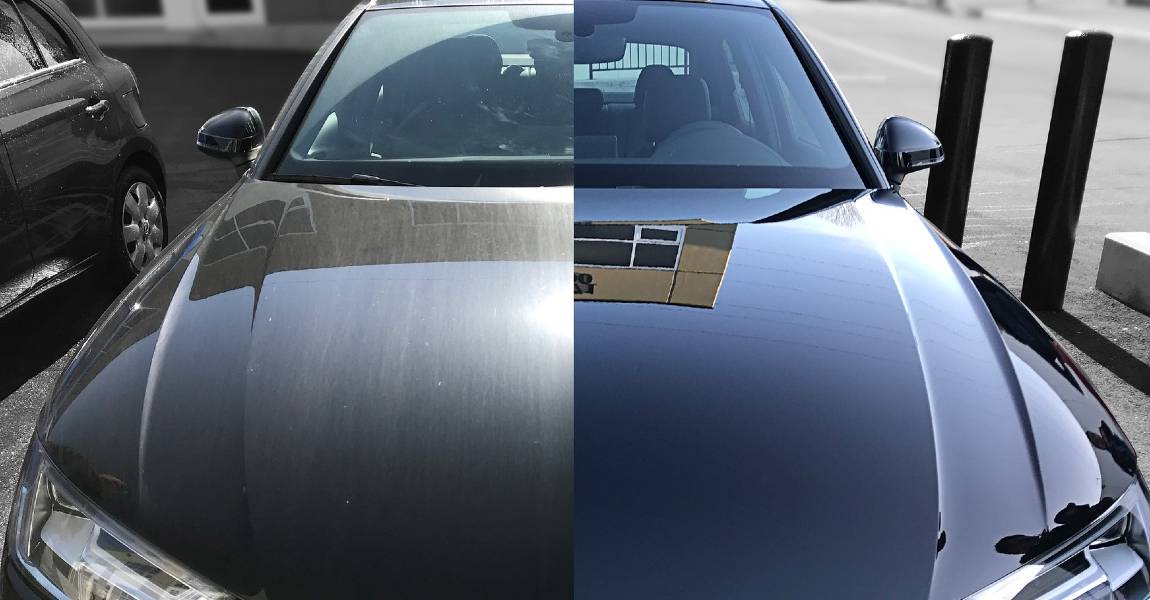A Comprehensive Overview to the Kinds Of Ceramic Finishing on the marketplace
Ceramic layers have arised as an essential solution across various sectors due to their one-of-a-kind residential properties and applications. As we discover the distinctive features and applications of these finishings, the effects for efficiency and long life become significantly noticeable, increasing concerns concerning which kind may finest suit your needs.
Comprehending Ceramic Coatings
Ceramic finishes are sophisticated safety remedies that have actually acquired appeal in numerous markets, particularly in automobile and aerospace applications. These finishings are composed of a liquid polymer that, when treated, forms a long lasting, hydrophobic layer externally of the substrate. This layer gives improved resistance to ecological contaminants, UV radiation, and chemical exposure, thereby extending the life and visual appeal of the underlying product.
The basic element of ceramic finishings is silica, which contributes to their solidity and toughness. The application process typically involves surface preparation, application of the covering, and healing, which can be achieved via warmth or UV light. Once cured, ceramic finishes display exceptional bonding residential properties, permitting them to stick strongly to a variety of surface areas, consisting of steels, plastics, and glass.
In addition to their safety attributes, ceramic layers likewise offer simplicity of upkeep. Their hydrophobic nature reduces the adherence of dirt and crud, making cleansing simpler and much less constant. On the whole, the adoption of ceramic finishings stands for a considerable development in surface security modern technology, giving both functional and visual advantages throughout numerous markets.
Kinds Of Ceramic Coatings
Different kinds of ceramic coatings are available, each designed to fulfill certain performance needs and applications - ceramic coating sarasota. The most common kinds include:
Silica-based Coatings: These finishes primarily include silicon dioxide and are understood for their durability and chemical resistance. They are widely made use of in auto and commercial applications.
Titanium Dioxide Coatings: Renowned for their photocatalytic properties, titanium dioxide finishings are often applied in atmospheres where self-cleaning and antifungal residential or commercial properties are desirable, such as in structure products and automotive finishes.
Zirconia Coatings: Identified by their high-temperature security and thermal resistance, zirconia coverings are used in applications such as generator engines and high-performance auto elements.
Alumina Coatings: Exhibiting excellent hardness and thermal security, alumina finishes are frequently made use of in wear-resistant applications, including cutting devices and commercial equipment. - ceramic coating sarasota
Hybrid Coatings: Incorporating the buildings of numerous materials, hybrid coatings use improved performance characteristics, making them ideal for special and requiring applications.
Each kind of ceramic finish offers distinctive objectives, enabling individuals to choose one of the most ideal option based upon particular environmental problems and efficiency requirements.
Advantages of Ceramic Coatings
Coatings play a critical duty in enhancing the efficiency and long life of surfaces across different sectors. Ceramic finishings, specifically, offer numerous benefits that make them significantly popular amongst suppliers and consumers alike. Among the main advantages is their exceptional longevity. These coverings are resistant to scrapes, chemicals, and UV rays, guaranteeing that the underlying surface area stays safeguarded over time.
Along with durability, ceramic layers offer superb hydrophobic residential properties, permitting easy cleansing and upkeep. This water-repellent nature minimizes the adherence of dust, crud, and other contaminants, which can lengthen the aesthetic appeal and functionality of the surface area. Ceramic finishes can significantly enhance thermal resistance, making them excellent for applications that withstand high temperature levels.

Application Refine
When applying ceramic finishings, a meticulous technique is crucial to attain ideal outcomes. A clean surface area makes certain proper attachment of the covering.
As soon as the surface area is prepped, link the following action is to apply the ceramic layer. This can be done using an applicator pad or a microfiber fabric, guaranteeing even protection. It is vital to operate in tiny areas to maintain control and protect against premature curing. The covering must be applied in thin layers, as thicker applications can cause irregular surfaces.
After application, the finish calls for a particular healing time, commonly varying from a few hours to a full day, depending on the item. During this time, it is important to stay clear of direct exposure to wetness or impurities. A gentle buffing may be needed after curing to enhance the gloss and eliminate any type of high spots. Following these steps diligently will make the most of the effectiveness and long life of the ceramic covering, giving a resilient safety layer for the surface.
Maintenance and Durability
To make certain the longevity and performance of a ceramic layer, regular maintenance is necessary. Ceramic layers, known for their longevity and protective qualities, call for details treatment regimens to optimize their life-span and efficiency.
In enhancement to regular washing, regular assessments are critical. Seek indications of wear or damage, such as hydrophobic buildings decreasing or surface blemishes. If essential, a light gloss might be put on revitalize the finish without stripping it away.
Additionally, the application of a booster spray can improve the layer's hydrophobic effects and recover its gloss. This is especially beneficial for coverings that have remained in usage for a prolonged duration. Ultimately, by sticking to these maintenance practices, one can considerably expand the life of a ceramic finishing, guaranteeing that it proceeds to offer ideal defense versus environmental aspects and maintain the visual appeal of the automobile.
Conclusion
